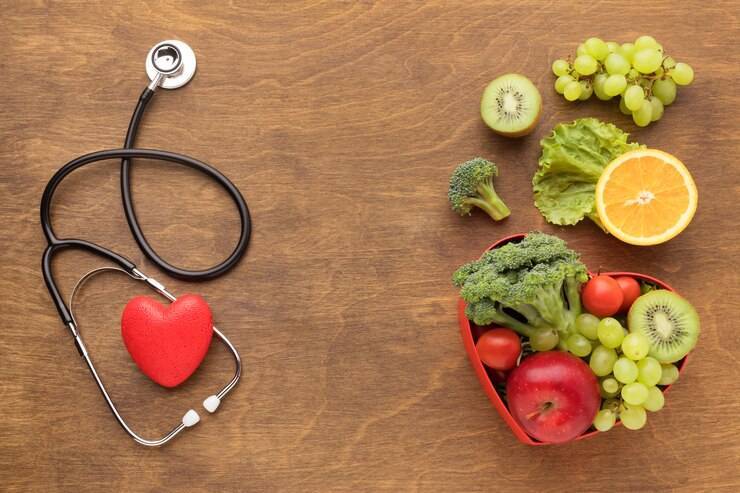Are there foods that lower blood pressure? We will find out in this blog post. You might have heard that reducing salt can help to lower blood pressure, as well as reducing fatty oils. Yes, these are a few of the many popular pieces of advice that go around, which is why this is an interesting topic to explore.
“Lower Blood Pressure” – What Does That Even Mean?
Lowering blood pressure would mean the opposite of experiencing High Blood pressure. So, what does “High Blood Pressure” mean? High Blood Pressure, also known as hypertension, is a common condition that affects millions of people worldwide. It is characterized by elevated blood pressure levels, which can increase the risk of heart disease, stroke, and other serious health complications.
What Causes High Blood Pressure?
High Blood Pressure occurs when the force of blood pushing against the artery walls is too high. Over time, this can damage the arteries and lead to health problems, such as heart disease, stroke, kidney failure, and vision loss.
The danger here is, that you won’t feel if the force within the arterial system is higher than it should be, and this is why high blood pressure is often tagged “the silent killer” because it strikes without warning.
In many cases, high blood pressure is a result of a combination of factors, including:
- Genetics: High blood pressure can run in families.
- Age: The risk of high blood pressure increases with age.
- Weight: Being overweight or obese increases your risk of high blood pressure.
- Physical inactivity: Not getting enough exercise increases your risk of high blood pressure.
- Diet: Eating too much sodium (salt) and not enough potassium and magnesium can increase your risk of high blood pressure.
- Alcohol: Drinking too much alcohol can increase your risk of high blood pressure.
- Smoking: Smoking damages blood vessels and increases blood pressure.
- Stress: High levels of stress can raise blood pressure.
- Chronic health conditions: Certain chronic health conditions, such as kidney disease, diabetes, and sleep apnea, can increase your risk of high blood pressure.
Can Foods Lower Blood Pressure?
Dr. David Jenkins, a renowned nutrition expert and professor at the University of Toronto, emphasizes the importance of incorporating a variety of nutrient-rich foods into the diet to lower blood pressure and promote cardiovascular health. He states:
“A diet rich in fruits, vegetables, whole grains, and low-fat dairy products is a powerful tool for managing blood pressure and reducing the risk of heart disease and stroke. These foods are packed with essential nutrients, including potassium, magnesium, and fiber, which play a crucial role in regulating blood pressure levels.”
Dr. Jenkins concludes by emphasizing the importance of a holistic approach to blood pressure management: “While diet plays a crucial role in lowering blood pressure, it’s essential to combine dietary changes with other healthy lifestyle habits, such as regular exercise, stress management, and maintaining a healthy weight.” he explains.
Indeed, there are more than 10 foods that lower blood pressure and fortunately, you can easily get these foods around you. However, we will beam the searchlight on 15 Foods that Lower High Blood Pressure.
15 Foods that Lower High Blood Pressure Naturally
1. Avocado
One avocado contains about 975 milligrams of potassium, which is about 25 percent of your daily intake. Research found that consuming avocados, five or more times per week led to a 17% decrease in hypertension. That’s because potassium can mitigate the effects of sodium, sending sodium out of the body through urine instead of staying in the body to damage vessels.
2. Almonds
A study published in the journal “Hypertension” found that people who ate 50 grams of almonds per day for 4 weeks had a significant decrease in their blood pressure. Another study, published in the journal “Nutrition Research,” found that people who ate 30 grams of almonds per day for 6 weeks had a significant decrease in their cholesterol levels. These studies suggest that almonds can be a helpful part of a healthy diet for people who are trying to lower their blood pressure and cholesterol levels.
3. Beetroots
Beetroots are high in nitric oxide. Consuming about 1 cup of nitrate-rich beet juice once a day could help reduce blood pressure. Nitrate converts to nitric oxide, which in turn widens the vessels allowing greater blood flow and consequently lowering blood pressure.
Get Beetroot in 150G powdered form delivered to your doorstep.
4. Bananas
Bananas are rich in potassium, with one average-sized banana packing about 420 milligrams. That’s about nine percent of the recommended daily intake. Potassium is great for blood pressure management and research has shown diets lacking in potassium are associated with higher blood pressure.
5. Blueberries
Blueberries are a good source of anthocyanins, which are a type of flavonoid that has been shown to help lower blood pressure. Anthocyanins help to improve the function of the endothelial cells that line the blood vessels. These cells help to regulate blood flow and blood pressure.
Blueberries also contain fiber, which can help to lower cholesterol levels. Cholesterol is a type of fat that can build up in the arteries and lead to high blood pressure.
6. Broccoli
Broccoli contains Magnesium, Potassium, Nitrates, and a unique compound called sulforaphane, which has been shown to have blood pressure-lowering properties. Sulforaphane can reduce the activity of enzymes that contribute to blood vessel constriction, leading to improved blood flow and lower blood pressure.
7. Spinach
Spinach is a leafy green vegetable that is low in sodium and a good source of potassium, magnesium, and fiber. Eating spinach regularly can be a helpful part of a healthy diet for people who are trying to lower their blood pressure.
8. Red bell peppers
Red bell peppers help reduce high blood pressure with the help of potassium and vitamin C, which helps to relax blood vessels and improve blood flow. They’re also high in fiber, which can help to lower cholesterol levels.
9. Unsalted pumpkin seeds
Pumpkin seeds are rich in antioxidants, including vitamin E and phenolic compounds. Antioxidants help combat oxidative stress and inflammation, which are factors linked to hypertension and other cardiovascular issues.
Unsalted pumpkin seeds are naturally low in sodium. A reduced sodium intake is often recommended for individuals looking to manage or prevent high blood pressure.
Read also: 7 Simple Daily Lifestyle to Adopt that Help Control Your Blood Pressure
10. Pomegranate
Studies have shown that drinking pomegranate juice can lower blood pressure in people with high blood pressure. One study found that drinking 500 ml of pomegranate juice per day for 2 weeks lowered blood pressure by an average of 5%. Another study found that drinking 1 cup of pomegranate juice per day for 8 weeks lowered blood pressure by an average of 10%.
11. Dried apricots
Dried apricots have a higher amount of potassium than bananas, according to Nutritionist. Diets high in potassium may help in controlling blood pressure. Potassium helps widen the blood vessels and assists the kidneys in excreting excess sodium from the body. Additionally, dried apricots contain antioxidants that help reduce inflammation, which can contribute to high blood pressure.
12. Celery
Celery contains phthalides, specifically 3-n-butylphthalide (NBP), which have been shown to relax the muscles of the artery walls, increasing blood flow and reducing blood pressure. Celery has a diuretic effect, meaning it helps the body remove excess water and sodium. This can help to reduce blood volume and lower blood pressure.
13. Peaches
Peaches also help regulate your blood pressure due to their high fiber content and low sodium levels. Additionally, peaches contain vitamins C and E, which are antioxidants that can help to protect the heart and blood vessels. They can be eaten fresh, canned, or frozen.
14. Low-fat or fat-free yogurt
Yogurt can help reduce high blood pressure in a few ways. First, yogurt contains probiotics. Probiotics can help to reduce inflammation and improve blood vessel function. When blood vessels function properly, this can help to lower blood pressure. Yogurt contains calcium, and calcium helps the muscles in your blood vessels contract and relax. When your blood vessels can contract and relax properly, this helps to regulate your blood pressure. Finally, yogurt contains potassium, and potassium helps to balance out the sodium in your blood. When sodium levels are balanced, this can also help to lower blood pressure.
15. Quinoa
Quinoa is a good choice for people who are looking for a gluten-free grain or a plant-based protein source. It is also a good source of magnesium, phosphorus, manganese, and zinc. Quinoa has a low glycemic index, making it a great addition to a blood pressure management diet.
Read Also: Normalize Your Blood Sugar Naturally with These 5 Daily Habits


Leave a Reply